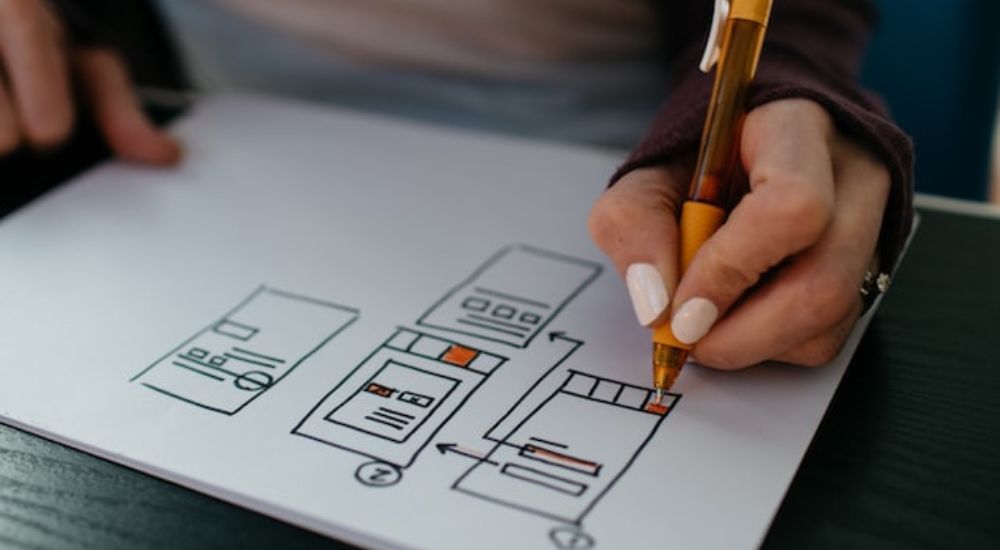We all know that the gaming industry is booming – and it keeps getting bigger every day. Their popularity is easy to explain: games are fun, interactive and they can be rich social experiences for most of us.
One of the main reasons behind their huge presence in the world is the recent popularization of mobile gaming, which allows people to enjoy the pleasures of gaming while outside their home, with many (25%) playing on their commute.
With their success and huge market share, it’s not hard to understand why many are interested in breaking into the gaming industry as either a game developer or a game designer, the two best known jobs in the field.
As such, their salaries are of great interest to anyone who is looking to get into the gaming industry, often being in the spotlight of frequently asked questions.
In this post, we will talk about how much game developers and game designers make a year. We will also provide you with a description of the roles of game designers and game developers, a duo more iconic than Tom and Jerry in the gaming industry, and their key differences.
As a bonus, we are going to nudge you in the right direction if you want to work in the field, but can’t decide between either options!
Game developer vs game designer salary
Despite dealing with different aspects of the field, those two jobs have a thing in common: they are professions that pay really, really well.
According to CareerExplorer, the average annual salary for a game developer is around $100,000 a year. For game designers, the figure is $90,000 a year. If those figures weren’t enough, both careers also rank very high in satisfaction.
Not too shabby, eh?
Keep in mind that those values represent the average pay for those roles. The actual salary will depend on many factors, such as years of experience, where you are located, your portfolio and many other factors.
What’s the difference between a game developer and a game designer?
To an outsider, they might feel like the same thing, but the truth is far from this misconception.
Simply put, the game designer is the professional who takes a game idea and hones it until they can visualize it. Then, they pass this vision to other team members through the Game Design Document (GDD).
On the other hand, a game developer takes care of the development of a game, which includes programming and the implementation of mechanics into the game. In short, they act as the translators of the GDD game designers have conceived.
For a more in-depth description of both roles, read below:
What does a game designer do?
No matter which game you play, they always have a fundamental idea, a basic premise they follow. This and everything that follows is meticulously designed and balanced by game designers, who have to create a Game Design Document (GDD) to direct the development of a game.
In said document, designers will have many things about a game set in stone before actually starting its development, such as the game’s genre, main plot, level design principles, the art style, characters, gameplay, user interface guidelines, game mechanics, goals and challenges and so on.
Furthermore, game designers will write an executive summary of the game in the GDD, which should cover all key questions executives and potential investors might have. They include, but are not limited to:
– What is the game about? Which comparisons to existing games might help paint a clearer picture?
– How different is this game from competitors, and why is it better than the alternatives?
– How will you generate income from this game? What is its business model?
– How much will it cost to develop this game? And how long will it take?
– What are the risks of your project? How will you manage and overcome them if they arise?
Without the GDD to serve as a guide to developers and game artists, completing a game that feels cohesive and plays well is a nigh impossible task. This is why, once the initial design phase is over, designers work closely with the rest of the team to ensure everything is falling in line with their original vision.
This does not mean, however, that the GDD must be followed to a T. As team members get new, better polished ideas and testers give you feedback from prototypes, so don’t be afraid to deviate from the original plan. You can’t forget to keep the GDD updated, though.
Game designers may also be split into different teams according to the strengths of each team member. If there are talented writers in your team, getting them to work on the dialogues, in-game lore and the game’s story is the way to go. Likewise, having a team responsible for balancing the game and another for level design is recommended.
All in all, game designers are key members of a game studio because they have a deep understanding of what a player expects from a game. This helps them create the vision that will guide their colleagues throughout the game development process.

What does a game developer do?
As we mentioned before, game developers tackle on the challenge of creating the game itself. They write the game logic behind the games, which includes the correct implementation of visual effects, audio elements, networks (for multiplayer games) and responsive controls – all in accordance with the GDD written by game designers.
Game developers are also the ones responsible for optimizing and playtesting the game if the company doesn’t have dedicated Quality Assurance (QA) professionals in their workforce.
Thankfully, there are specialized tools to help them out: game engines allow developers to avoid writing the most basic features of a game over and over again, giving them a well-documented framework to create with.
The most popular options in the market right now are Unity and Unreal Engine, which are free until you hit certain revenue thresholds.
Despite being the option for most indie and small companies, it’s possible to develop your own game engine like many big companies do, but that’s going to cost you a lot of time and money that could be better spent elsewhere.

Game design vs game development: which one should I choose?
Seeing that there aren’t expressive differences in the salaries of both game developers and game designers, if you want to get a job in the gaming industry, aim for the role that resonates better with your interests – better yet if either is already a hobby of yours.
If you are a more creative person who enjoys tinkering with different scenarios, balancing game mechanics, creating immersive universes through worldbuilding and designing game levels, then game design would be a better fit.
If you instead would rather work with logic, programming and actually translating a game idea into reality, then game development seems perfect for you.
In any case, the gaming field is expected to grow exponentially bigger with every passing year, so there are no objectively wrong choices here.
Wrapping it up
As you saw, despite dealing with beasts of their own, both game designers and game developers work side by side and are crucial in the making of a game. The former creates a vision of how a game should play like and the latter, along with game artists, makes it real through code and hard work.
Do you have a game idea, but don’t want to spend hundreds (if not thousands) of hours to bring it to life? Well, we have the perfect solution for you!
At Main Leaf, we take ideas from our clients and make fantastic games on demand, delivering projects the way clients want them to be. With over 70 qualified professionals and hundreds of collective years of experience in the industry, we have been creating games since 2010, and we’d be pleased to do the same for you.
All you need to do is to go to the top of this game and request a quote right now. We will get in touch with you in no more than 24 hours!

